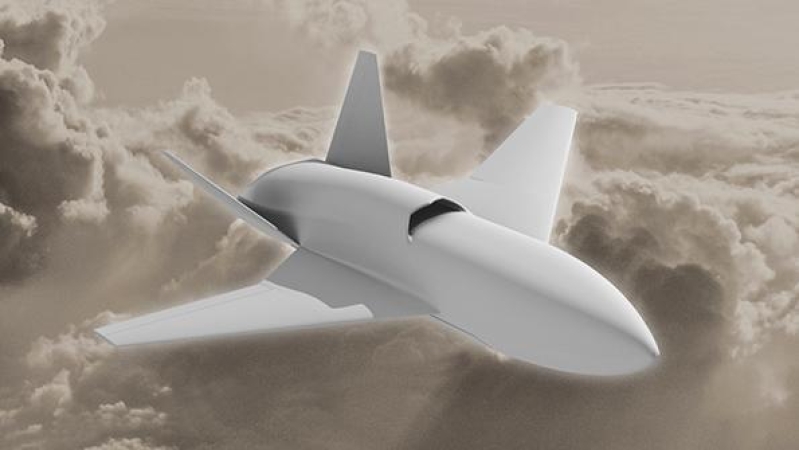8 mars 2021
USAF Planning Boss Pushes for Flexible Budgets to Keep Up with New Tech - Air Force Magazine
As the Air Force pieces together its fiscal 2023 budget, due early next year, it must think about a murky future five years down the road.
10 juillet 2020 | International, Fabrication additive

Tony Osborne July 10, 2020
Bidders pushing for a role to build a technology demonstrator for the UK's Lightweight Affordable Novel Combat Aircraft (LANCA) are waiting to see if their design proposals will be approved for the next phase of the initiative.
Three industry teams were selected last summer (AW&ST July 29-Aug. 18, 2019, p. 18) to take forward development of the LANCA air system, an unmanned air vehicle that could act as additive capability accompanying future combat aircraft into operations. LANCA would perform a range of tasks, including serving as a loyal wingman, gathering intelligence or acting as a weapons carrier. The Royal Air Force envisions a platform costing 1/10th of current combat aircraft and developed in one-fifth of the time. The idea is like that of the Kratos XQ-58 Valkyrie for the U.S. Air Force's Skyborg program, Australia's Boeing-led Airpower Teaming System and remote carriers for the French, German and Spanish Future Combat Air System.
Since then, the industry teams—which include Boeing Phantom Works International, working with Marshall Aerospace and Defence Group and Cranfield University; consortium Team Black Dawn, Callen-Lenz and Bombardier Belfast; and Northrop Grumman UK with Team Avenger, led by Blue Bear Systems Research and yet to be disclosed partners—submitted their proposals for the £4.8 million ($6 million) Phase 1.
The LANCA program is being led by the UK Defense Science and Technology Laboratories in conjunction with the Royal Air Force's Rapid Capability Office.
The UK Defense Ministry is evaluating proposals in readiness for the second phase of the project, called Mosquito, which is worth £30-50 million. Mosquito would see one, possibly two of the candidates being matured into a full-size flightworthy demonstrator potentially undertaking a flight-test program. Aviation Week has been told there was stiff competition for the LANCA program: Some 45 bidders entered Phase 1 and were subsequently scaled down to nine. Around eight bids were then tendered, of which three were chosen.
Few details have emerged about the proposals, although Boeing Australia confirmed through social media that it had secured a “first-of-type permit” from the Australian government to share design material for its Airpower Teaming System with the UK, suggesting the Boeing proposal may borrow heavily from that platform. Progress is also occurring on a drone swarm system announced by former Defense Secretary Gavin Williamson in February 2019: Demonstrations in March using five unmanned air vehicles proved a collaborative capability between the platforms, people close to the program told Aviation Week.
https://aviationweek.com/ad-week/additive-technologies-future-uk-air-power-advance

8 mars 2021
As the Air Force pieces together its fiscal 2023 budget, due early next year, it must think about a murky future five years down the road.

27 mars 2020
No HANNOVER MESSE in 2020 HANNOVER MESSE cannot take place this year due to the increasingly critical situation surrounding the Covid-19 pandemic. The Hannover region has issued a decree that prohibits the staging of the world's leading tradeshow for industrial technology. From now until the next HANNOVER MESSE in April 2021, a digital information and networking offer will provide exhibitors and visitors with the opportunity for economic policy orientation and technological exchange.

3 août 2020
Marc Boucher July 31, 2020 Business, News Leave a comment An email was recently circulated from the U.S. Embassy in Montreal regarding a new competition jointly organized by U.S. and the UK called the International Space Pitch Day that is open to “space entrepreneurs” around the world. The registration questionnaire deadline for the International Space Pitch Day is Wednesday, August 19, 2020 7:00 a.m. EDT (12:00 p.m. BST). Proposals must then be submitted by 7:00 a.m. EDT (12:00 p.m. BST) on Wednesday, September 2nd, 2020. The email provides the following information: The International Space Pitch Day is a joint U.S. – UK initiative that aims to find, fund and fast-track innovation and technology that gives advantage to military operations in space. The competition is open to innovators from all over the world and delivered through the UK Defence and Security Accelerator (DASA). The endeavour is jointly funded by the UK's Defence Science and Technology Laboratory (Dstl), Royal Air Force and the U.S. Air Force. A grand coalition of Dstl, DASA, Royal Air Force, UK Strategic Command, the U.S. Air Force, U.S. Space Force, and the North Atlantic Treaty Organisation (NATO) has been assembled to find, fund, and fast-track the best ideas from start-up innovators to the front line. The competition is seeking solutions to six challenges set by the U.S. and UK Space teams: Visualisation of key events and information for combined space operations with allies and commercial partners. Understanding current satellite systems relevant to the operations of a particular commander. Understanding the present and potential impact of space weather on users across all domains. Provision of training against realistic threats and opportunities, incorporating live data, and integrating space across multiple domains. Enabling common and user-defined operational pictures to support multi-national space domain awareness and command and control. A verification and comparison tool for Space domain awareness, which can take orbital observation data from a variety of sources and in a variety of formats and produce a single, reliable operational picture. £800k (approximately US$1M) is available to fund up to 15 proposals, with a maximum value of £53k (approximately US$67k) each. The duration of each of the funded projects is to be no longer than 3 months.